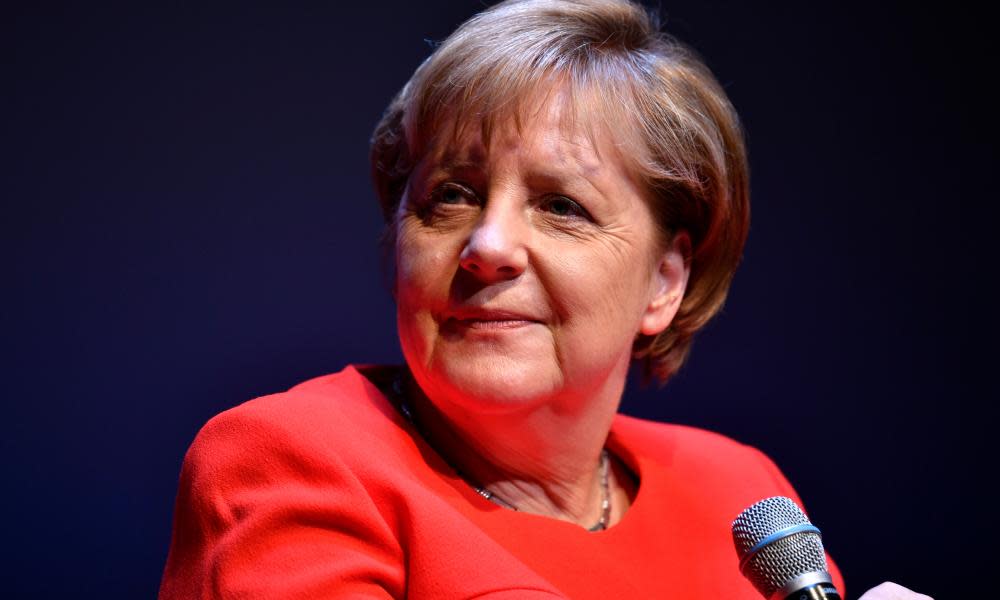Angela Merkel signals change in stance on gay marriage in Germany

Angela Merkel has signalled a change in her party’s opposition to gay marriage after stating MPs should be allowed a free vote in the German parliament.
Speaking at an event organised by the magazine Brigitte, the German chancellor said she felt aggrieved that debate was mainly carried out along party lines and that she hoped it would be “headed towards a conscience vote”.
It is widely believed the Bundestag would legalise gay marriage in a free vote on the issue.
Germany is one of a few western countries where same-sex marriage is still not legal. Civil partnerships have been allowed since 2001, but Merkel’s Christian Democratic Union has resisted calls to open up marriage to same-sex couples.
The centre-right CDU, which has been governing as senior partner in a coalition with the centre-left SPD since 2013, has said it prefers to amend legislation so couples in a civil partnership have the same tax status and adoption rights as married couples.
Coming less than three months before federal elections, Merkel’s comments could take the wind out of her critics’ sails and open her party up to the widest possible range of post-election coalitions.
The Social Democrats, the German Greens and the resurgent liberal Free Democratic party have all signalled they would make possible CDU opposition to gay marriage a red line in coalition talks.
Liberal and conservative wings of Merkel’s party remain torn on the issue, however – a division which her main rival, the SPD leader, Martin Schulz, is seeking to exploit. Reacting to the chancellor’s comments on Tuesday morning, he advocated tabling a conscience vote this week.
Michael Grosse-Brömer, the CDU’s chief whip, said on Tuesday morning he did not expect a vote on the subject until after the elections. “I would warn against rushing to a decision,” he told journalists. “That would not be appropriate to the subject.”
Merkel’s intervention echoes comments she made in a similar appearance before the 2013 federal elections. Then the chancellor said she had “difficulties” with giving gay and lesbian couples the right to adopt, admitting that this might seem old-fashioned. “I am unsure what is good for the child, and this uncertainty I would simply like to be allowed to express without wanting to discriminate against anyone,” she said.
At this week’s event, Merkel claimed that a visit to the home of a lesbian couple looking after eight foster children in her constituency in Mecklenburg-Vorpommern had led her to reconsider her position. If youth welfare offices were happy to trust same-sex couples to look after eight children, then it was difficult for the state to use child welfare as part of its argument against adoption by LGBT people.
In the interview with the editor of Brigitte, Merkel spoke about a range of personal and political issues. “I laugh at least once a day, otherwise I cannot do this job,” she also said, adding that she would “never allow people to take away my holiday from me”.

 Yahoo News
Yahoo News 
